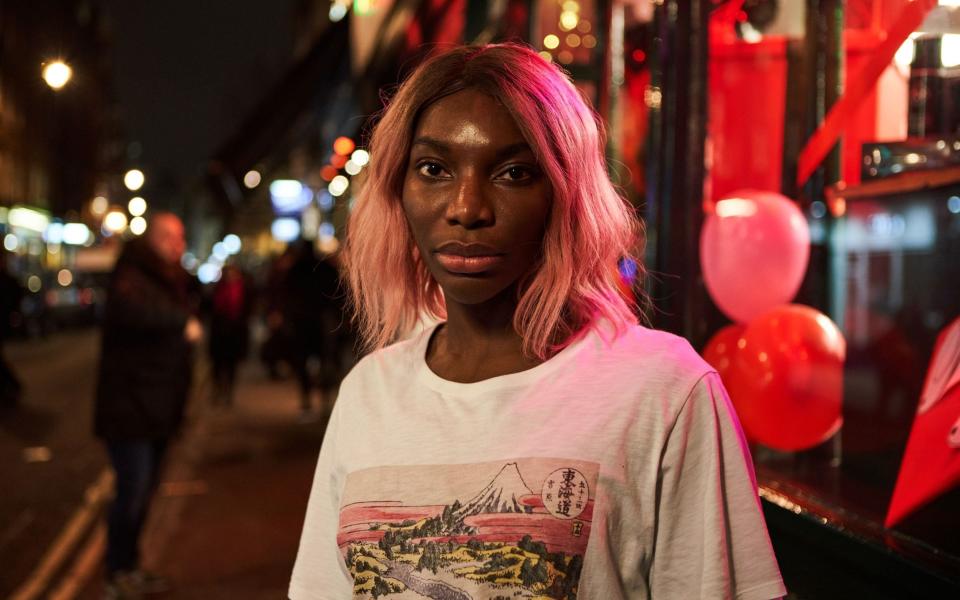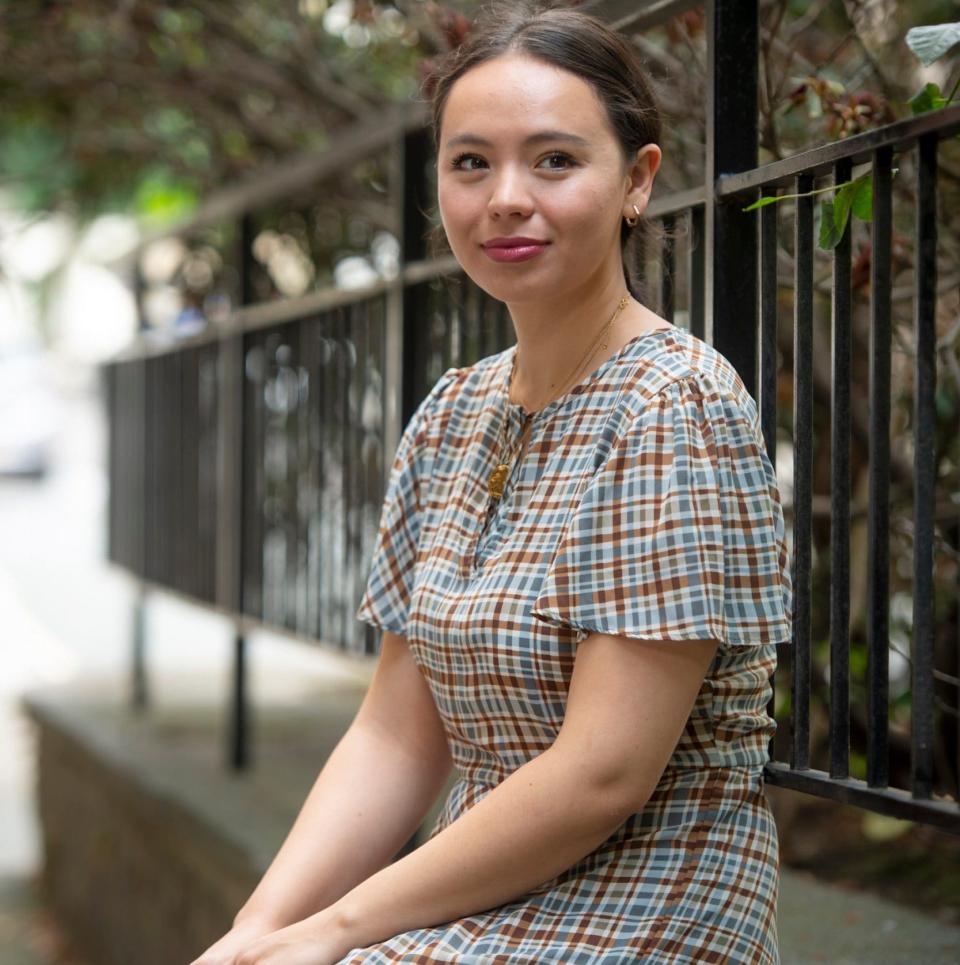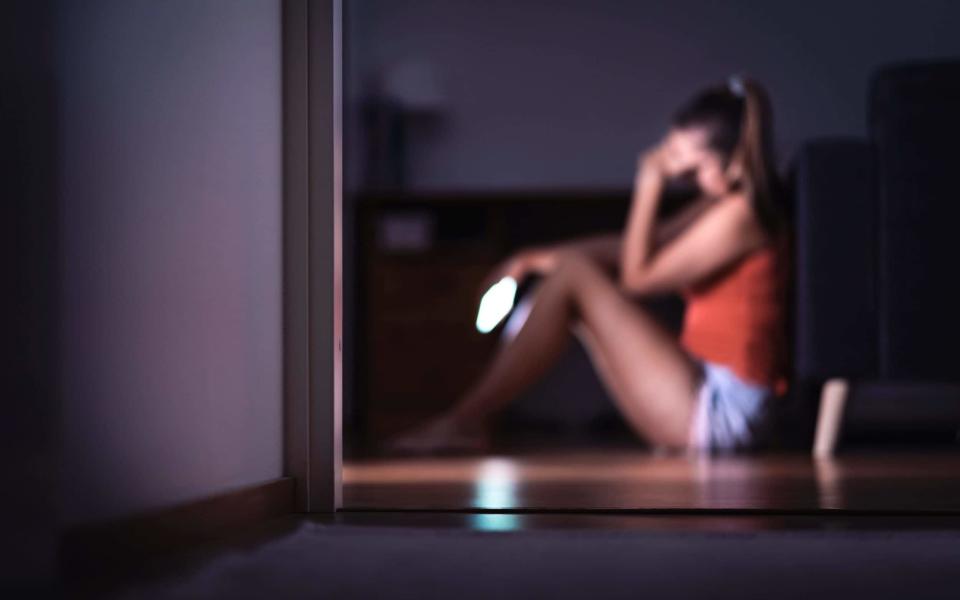Everyone’s Invited founder Soma Sara: ‘Porn has framed our lives and normalised sexual abuse’

In that first hot summer of lockdown, while completing her final essay for her university degree, 21-year-old student Soma Sara decided to post online about something that deeply troubled her. Something that, as a North London teenager and boarding school pupil, she had found to be endemic in classrooms, playgrounds, at house parties – and online.
Known by the controversial term “rape culture”, it encompassed “the derogatory ways that boys spoke about women and girls, the bragging about sexual conquests, objectifying comments about female bodies, jokes about sexual harassment and sexual assault [and] slut shaming,” she writes in her new book, Everyone’s Invited – which shares the name of the mass movement she almost inadvertently started.
This spectrum of behaviours and attitudes has the cumulative effect of making actual sexual harassment, assault and rape permissible, she argues. But the nuance was lost on critics, who raged that it was delusional to equate, say, wolf-whistling or comments about a girl’s appearance with rape.
It’s the lost nuance that Sara, now 23, explores in her collection of essays and which are typically absent from polarised online discussions.
The second of three sisters, Sara was raised by a single father, an American who works in sustainable energy. Her Chinese mother is a writer. Soma attended the all-girls independent Wycombe Abbey School in Buckinghamshire and lived near Hampstead Heath.
Approaching the end of her English literature degree at University College London, the conversation she started about rape culture was sparked by a series of chats among her friends, who had begun to compare their experiences of sexual abuse and sexual violence. Then Sara watched I May Destroy You, the BBC drama by Michaela Coel, which deals with themes of rape and sexual consent. In June 2020, she posted on Instagram about her own experience of sexual harassment, sexual bullying. “I didn’t explicitly talk about one experience, I listed a range of things,” she recalls when we meet in a café in west London.

She received an overwhelming response from those who also had stories to tell, ranging from the sickening to the harrowing. So in 2020 she set up the Everyone’s Invited website as a platform for survivors to share their own experiences anonymously. To date, it has received more than 50,000 submissions. Among the most recent is a post that begins: “I was 12 when I was raped. I had forgotten my homework…” Another starts: “I was sexually assaulted by a boy in my year, after school, while I was wearing my uniform.”
Sara was quickly propelled to the dizzying position of de facto spokeswoman for an unstoppable riptide of anger. “I just wanted to create a space for people to share their stories,” she says. “I thought that people would find a community and it would be a long-term project. But it just exploded in my face.”
Looking back, she admits it took its toll: “It’s quite overwhelming to have yourself and your image associated with something so traumatic. It has been a real struggle, but a really extraordinary moving experience that I don’t think I’d change.”
‘What about the girls? What about their lives?’
One of the difficulties was processing what she calls the “vicarious trauma” of reading so many stories about abuse. “It does impact you,” she says. Her team at Everyone’s Invited, which is now a charity with about 27 people working for it, includes a volunteer support worker who has been giving employees therapy to help them through.
The other major challenge for Sara and her colleagues was the inevitable backlash against their project, most of which came from mothers of boys who worried their sons were being unfairly demonised; labelled as rapists and predatory sexual aggressors.
Last year, Sara was invited to speak on a panel about female achievement. While she was eating her lunch afterwards, a woman in her late 40s approached her. Detailing the incident in her book, Sara writes: “‘What about the boys?’ she asked. ‘Don’t you think you’ve ruined some of their lives and reputations? Do you know that my son is scared to do anything now; he doesn’t even know how to speak to a girl because of you.’”
The woman further accused her of “making life hard for the boys” and asked her how she knew the testimonies she was gathering were even real. Sara replied: “And what about the girls? What about their lives?” The woman’s response had been typical of many she’d received from mothers of boys.
Today, she has a robust defence against this kind of opposition. “We’ve never been about naming and shaming,” she says. “It’s been an anonymous platform, and one of the most important ideas we’ve been pushing is reconciliation: that we are all imperfect and everyone deserves the chance to make amends, to become accountable for their actions and to change their behaviour.”
Yet the cut and thrust of emotive online debate leaves little room for empathy. It excels, instead, at quickly identifying “offenders” – those who have transgressed in some way, big or small, and who must be punished; cancel culture, as it’s known. “We’ve always been very anti-cancel culture,” she says. “There is a huge problem online, especially with my generation, of jumping to this anger, of ‘you’ve done this, you’re cancelled for this,’ and it’s horrific. It’s a really toxic and destructive environment.”
‘The less clothes we wore the more likes we received’
Just as rape culture dehumanises people, so does cancel culture, she argues. “If you cancel someone and see them as an evil monster who can never be redeemed, you’re doing in effect the same thing: you’re not seeing them as a human being.”
In her essays, she laments the “unforgiving landscape” of cancel culture that has left us so divided. She also does an effective job of exploring the multiple roots of the rape culture, how little it serves not only girls and women but also boys and men who are forced to perform a version of masculinity stripped of sensitivity. This culture, she argues, has been created and enabled by the insidious pressures on boys and girls to conform to gender stereotypes; the pressure on women to accept pain as intrinsic to both beauty and sex; the elevation of the female appearance above any other attribute we might find value in; and, of course, the role of social media and porn.
“Growing up, misogyny, sexual harassment and sexual abuse online was normalised amongst my peers; libraries of nudes of underage girls were shared on Google drives, being groped and grabbed at a party was normal, as were the unwanted advances, rape jokes, sexual bullying and unsolicited dick pics,” she writes. “There were exorbitant pressures on young girls to perform ‘hotness’ online. Porn was the wallpaper that framed our lives, normalising it all.” Against this backdrop, rape culture has flourished.

Hers, Sara acknowledges, has been a guinea pig generation, the first to grow up online. By the time she was 14, the constant sharing of pictures on social media was standard practice among teenagers.
“I was really caught up in that, growing up,” she says. “It was quite detrimental to my mental health, having as the sole source of my self-worth Instagram likes and caring so much about other people’s perception of me, rather than trying to find value and confidence in myself.”
During her final years at school, she became obsessed with restricting her food intake and overexercising to lose weight. Meanwhile, online, “the less clothes we wore the more likes we received,” she writes. “ Social media for me was a paralysing and psychologically crippling addiction.”
It’s an online culture that is alien to older generations who “have been raised and socialised in a very different environment, not having grown up with social media, phones, porn,” Sara says. “A lot of the misogyny and sexism is very entrenched in some people, and especially in some people from older generations. It’s like ‘that’s just how it is and you don’t challenge it’.”
Interestingly, it was members of these older generations who appeared the most affronted by Everyone’s Invited, rather than the boys whose behaviour was being called out. “I’ve been so moved by especially the boys I grew up with, and how open they were, and saying ‘wow, that’s really transformed my understanding of this issue, it’s really changed the way I think about it,” Sara says. Other boys thanked her for making it an inclusive platform that also, as the name suggests, invited boys to share their own experiences of abuse.
‘What can we actually do that will effect a meaningful change?’
But while the site keeps testimonies anonymous and does not name perpetrators, it does name schools in both the private and state sector, including some very well-known schools as well as universities. Even primary schools have been dragged in, with allegations made about abuse of under-12s. It has left headteachers grappling with the messy fall-out, forced to address allegations of abuse on their premises, or involving their pupils, while defending their reputations. Sara agrees it’s hard for teachers to police all this, but is unapologetic about the naming of schools and universities, which are listed in their hundreds on the website “to emphasise that rape culture exists everywhere”.
She says: “We encouraged our community to name schools because we felt it was really important for [survivors] to speak about their institutions and hold them accountable. [Schools] do have a responsibility in safeguarding young people and protecting them. ”
Last year, the Government asked Ofsted to investigate safeguarding policies and experiences in schools. Reporting last June, the watchdog found that sexual harassment had indeed become “normalised” for schoolchildren, who often don’t report it because it’s such a common occurrence. Inspectors were told of boys sharing nude pictures on WhatsApp and Snapchat and of girls who had been subjected to “unwanted touching in school corridors”.
Some schools conducted their own reviews, while pupils across London staged walk-outs.
Since then, Sara has been giving talks in schools, where she’s been impressed by the activism taking place, and her focus now is on solutions which she accepts will not be easy. How, I wonder, do we even begin to go about unpicking the kind of culture she describes? “Yeah, it’s a question I’m always asking myself: what can we actually do that will effect a meaningful change?”

The responsibility lies with everyone from young people and their parents and schools, right up to Government ministers, she believes. “Sex education has to be taken seriously,” she says. “It would be amazing if it was taken as seriously as maths and English. There needs to be funding, money for teacher training, a huge investment into making sure sex educators and teachers are qualified to deliver this kind of education in schools.”
As for the toll the past two years have taken on her personally, Sara feels better able to cope today than she did when it all took off.
“I struggled a lot in the aftermath of being so exposed and then feeling quite paranoid about going outside – it took a lot of time to move on from that and grow into the position I’m now in,” she says.
She tries to avoid social media these days to protect her mental health, and longs for a wider cultural shift away from phone addiction. “I remember [as a teenager] my screen time being seven hours a day,” she grimaces. “Who wants to live their life staring at a screen? It’s insane. I love doing things now where I’m fully engaged in the activity.”
How does she feel about being described as the voice of her generation? “I don’t know who’s described me as that,” she replies.
“I would describe you as that,” I tell her.
“I don’t really know,” she demurs. “I don’t feel I’m the voice, I feel it’s a collective voice, it’s all those stories. Those are the agents of change.”
Everyone's Invited by Soma Sara (RRP £14.99). Buy now for £12.99 at books.telegraph.co.uk or call 0844 871 1514.


